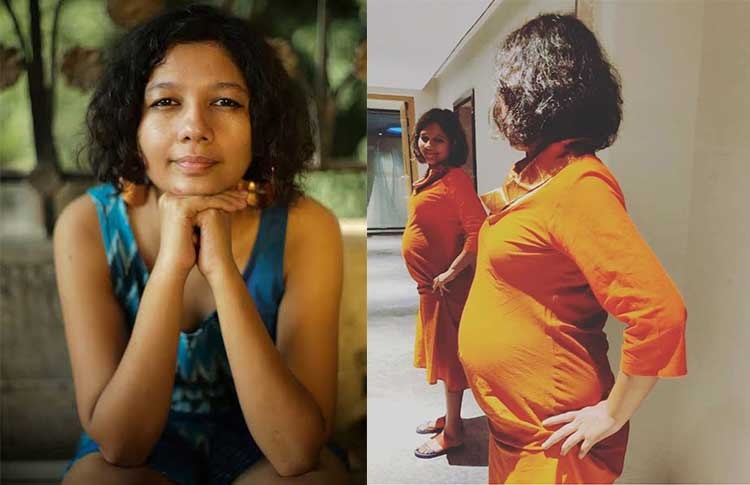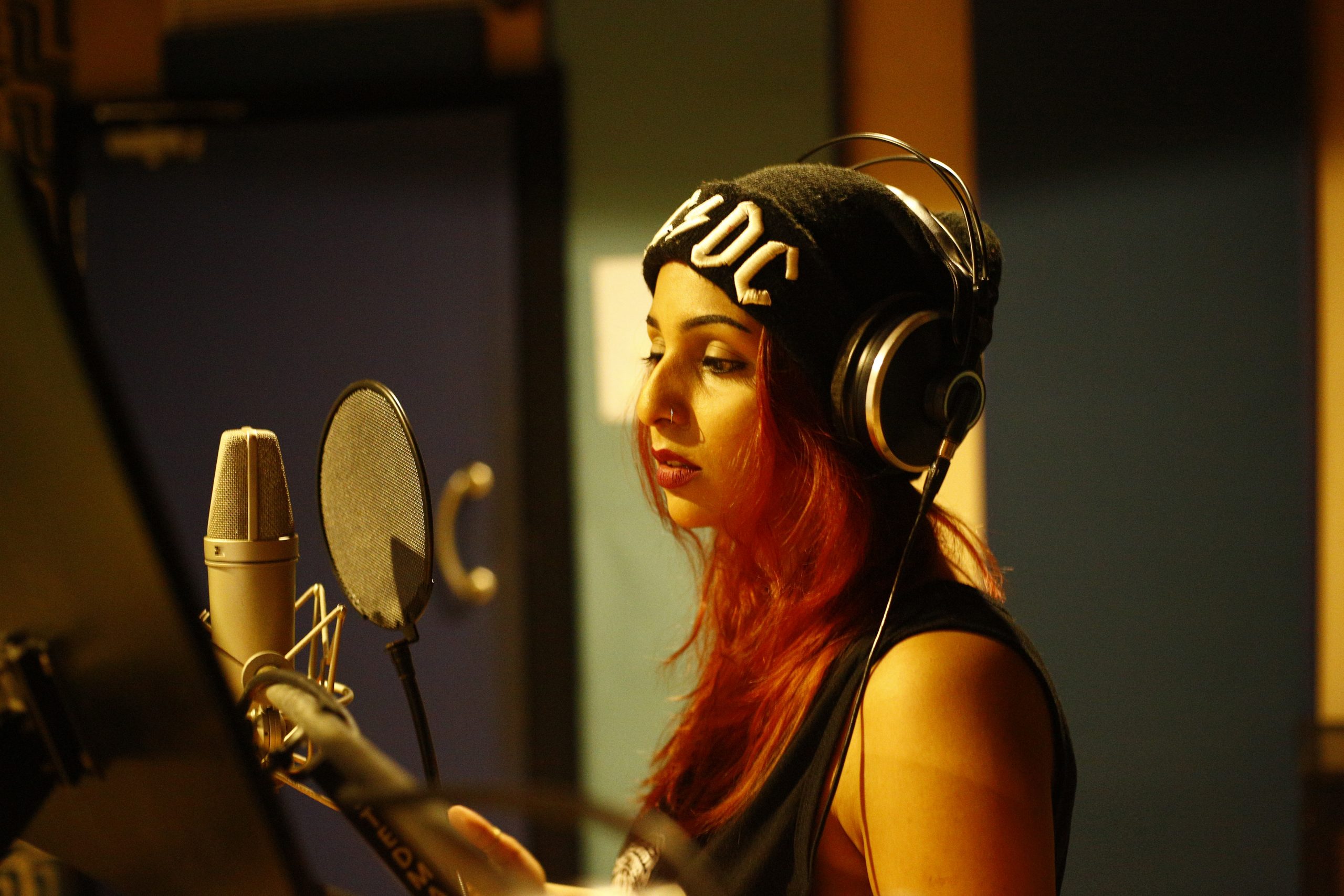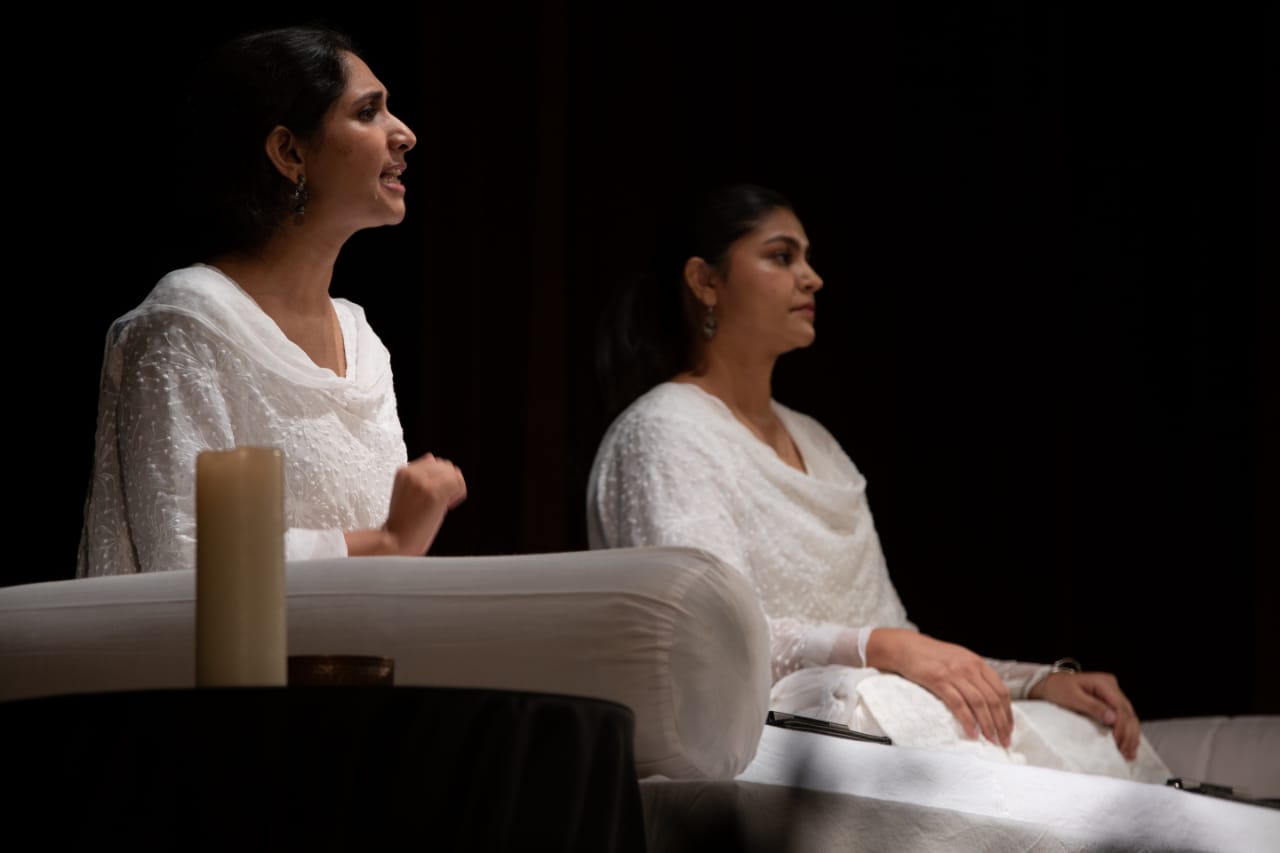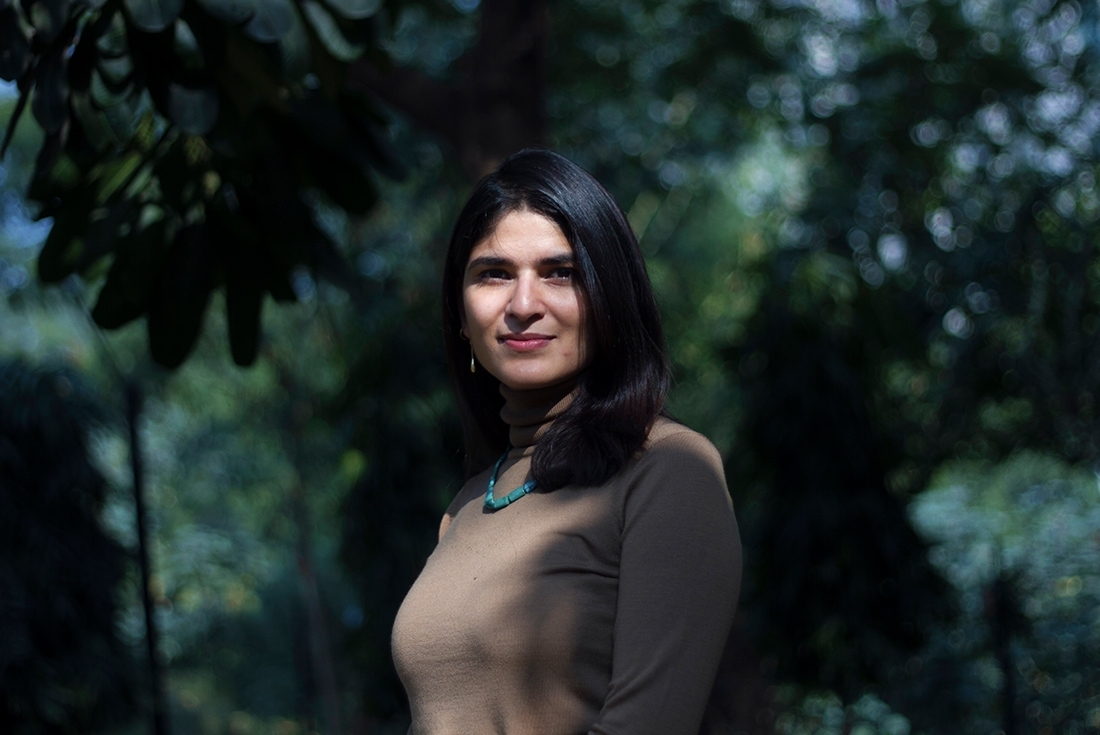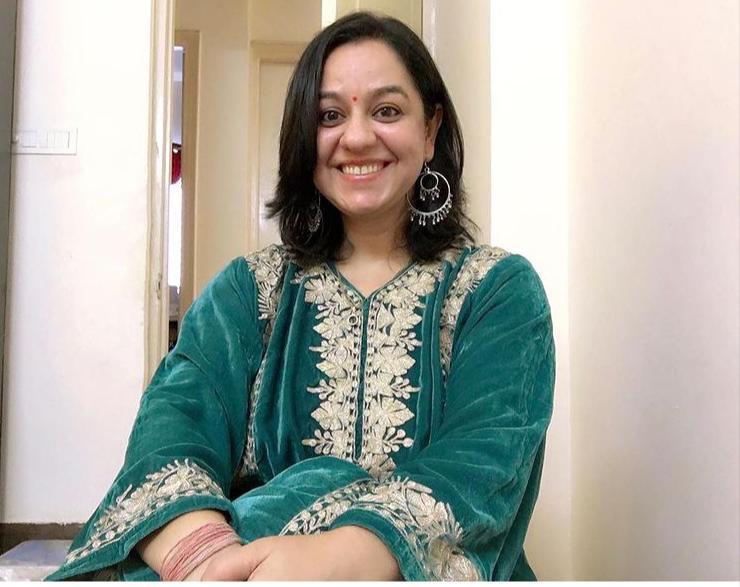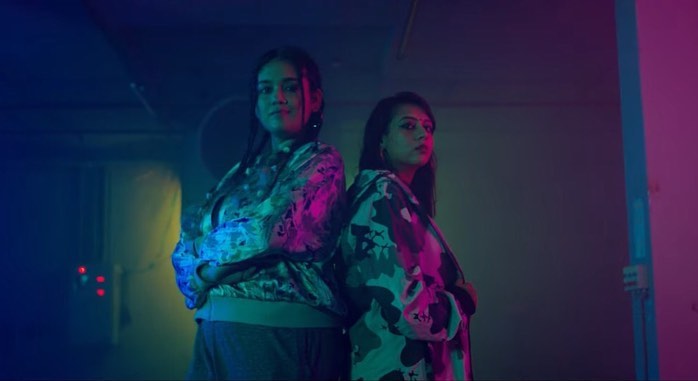Journalist Tabeenah Anjum Reconnects Kashmir Youth With Their Creativity Through Jhelum Fables
- IWB Post
- June 17, 2019
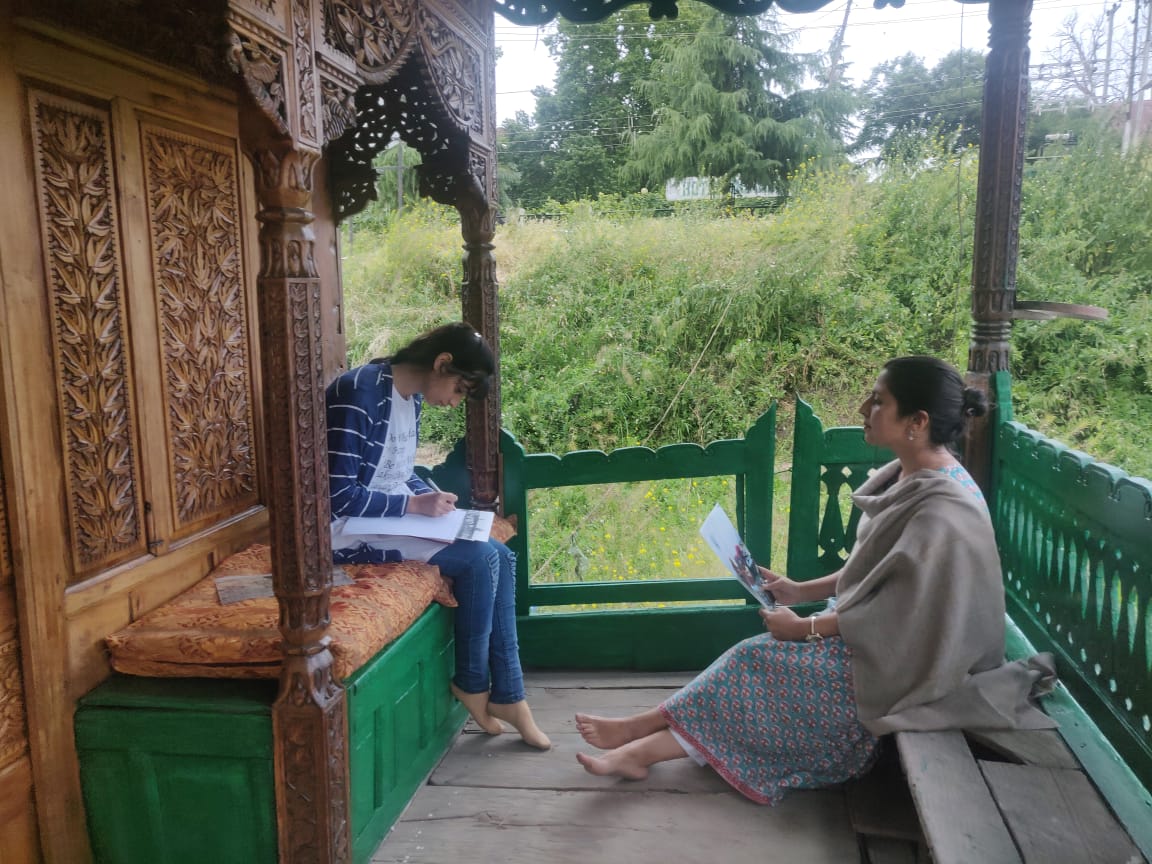
When you are in the Heaven on Earth and discussing creativity on a picturesque houseboat floating on a mythical river, what are the thoughts which cross your mind?
Two women from Kashmir have come up with the unique idea of ‘Jhelum Fables,’ a five-day workshop on visual storytelling, aboard the Roots houseboat over the Jhelum river (scenic beauty alert).
Nestled between water and serendipity all around, the opportunity to strengthen their bond with Mother Nature gave the participants a much-needed break from the incessant bustle of the 21st century that we live in.
Straying away from the conventional picture of conflict and strife in Kashmir presented by the media and popular culture, the fact that these two women ventured to do something which hasn’t been done before – giving the youth a long-due chance to explore their artistic self, made us curious.
IWB chatted with the two women behind the idea, noted journalist and photographer of Kashmiri origin Dr. Tabeenah Anjum, who taught the students at the workshop, and young entrepreneur Mahi Burza, the founder of ROOTS learning group.
The story of Kashmir in media is intertwined with narratives of the conflict. Does Jhelum Fables touch on human side of the conflict and how is it different from the mainstream narrative?
“Turmoil and conflict is a reality, but here in Jhelum Fables we are trying to change the focus of youth and imagine, which is where visual storytelling comes in. The soul of Jhelum Fables is imagination, imaginative writing and photography,” says Tabeenah, who is also a recipient of the national award on photography conferred by the Information and Broadcasting ministry.
She feels that through photos that depict visual language at their purest and lyrical writing with the usage of metaphor, in the five-day-long workshop they were able to see a different side of the youth of Kashmir, which was hitherto unknown to the world.
“The youth are willing to explore, they are yearning to discover something new, creativity as they want new avenues. There is a lot of untapped raw energy and this is an opportunity to interact, know each other better and help channel that energy,” feels Mahi.
It was quite an unlikely scene during the workshop for the youngsters, who were otherwise accustomed to meeting at cafes and food joints in Srinagar, around urbane people or members of the gen-next like them.
But here, atop the Roots, as they sat on intricately woven carpets, the participants could see ripples in the muddy waters of Jhelum, windswept verandahs, hide-and-seek of the mellow Sun, flutter of the evening birds and roving shikaras.
As they worked with the camera or just tried to know each other better, conversations from the nearby houseboats would waft in as they listened to Dr. Tabeenah.
The distant sound of bells from the Shankracharya temple and echoes of namaz left the budding visual storytellers in awe of the milieu.
“Youth in Kashmir is full of art and sensitivity. What the rest of India doesn’t know is that beyond the turmoil, Kashmir has always been an inspiration for artists and muse to poets,” says Tabeenah, who originally hails from Srinagar but currently is a scribe based in Jaipur, working with a leading English Daily.
True that! After all, the famous 12th century poet Kalhana, who wrote the epic Rajatarangini, was from Kashmir, making the Jhelum his inspiration.
We felt asking the two women about what peace means to the youth of Kashmir and why they believe similar initiatives can set a momentum for peace initiatives.
“Peace for youth also means peaceful, quaint spaces where they can come and interact, connecting with the nature and the rustic beauty of Kashmir. This concept or organising such a workshop on a houseboat is the first of its kind. The space is meant for the youth to work closely with mentor in a small group, exchange ideas and create,” says Tabeenah.
Starkly different from other conventional learning places, since the five-day-long workshop started from June 11, young faces have been filling up the classroom at the Roots houseboat, where they learn the craft of visual storytelling.
“I am a teacher by profession and have been teaching for the past four years. I was very keen on finding a place where students could engage together, it should be an empowering space. I had this desire that it should be something unique. My family owns this houseboat and suddenly a thought crossed my mind that why can’t a houseboat be that space,” Mahi told IWB.
The concept has most definitely managed to strike a chord with people as right after the first day’s end, the social media was flooded with enthusiastic posts by the participants and appreciation from netizens.
“The group energy changes in a quiet and beautiful environment like the one we have in our classroom at the Roots. We saw that away from the commotion, the students discovered aspects of their own characters of which they were not aware before,” says Mahi.
When we asked her about the nuances of Kashmiri life that the female gaze of the participants revealed in this project, Tabeenah, who has previously taught with students of renowned institutions such as the Indian Institute of Mass Communication (IIMC) and is also a fellow of the UNICEF, said that it was the realisation of the students that imagination in the right track can also bring one closer to equality, which was most fulfilling to her.
She said that the aim of the workshop is to refine the students, not change them. Once they discover their passion amidst the tranquility of the classroom, their own flair to explore more will guide them in the future.
“The more than 50 photographs, write-ups, and poems, which were displayed at the end of the workshop, is our ode to the Jhelum, the river, which has been an inspiration and muse, taught us resilience,” shared Tabeenah.
And just before ending her conversation with IWB, Dr. Tabeenah treated us with this couplet of famous Kashmiri poet Agha Shahid Ali, something that she said sums up the spirit of Kashmir.
When I return, the colours won’t be so brilliant, the Jhelum’s waters so clean, so ultramarine. My love so overexposed.
*** And we were spellbound***
- 0
- 0





